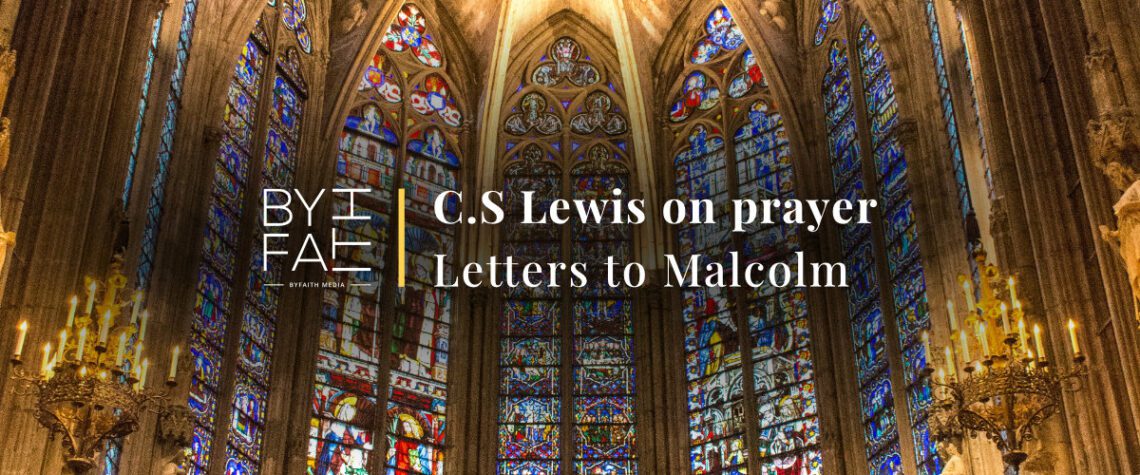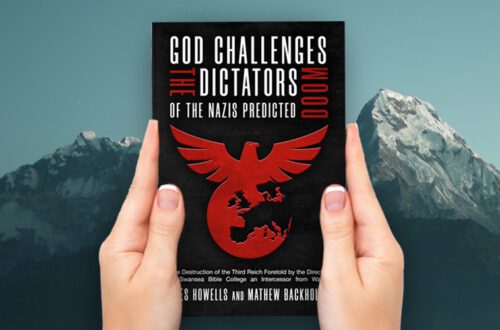
Letters to Malcolm: Chiefly on Prayer by C.S. Lewis: Book Review
Imagine sitting at a table near C.S. Lewis and overhearing his conversations about prayer with his close friend Malcolm. What you hear is not systemic theology, but observation, questions and revealing insights into Lewis’ mind, and devotional life. In one of his most personal books, Lewis begins to reveal deep thoughts on his private prayers, sacred theological beliefs and spiritual challenges.
Letters to Malcolm: Chiefly on Prayer offers readers a rare glimpse into the inner workings of C.S. Lewis’ theological processes and prayer life, as he wrestles with profound conundrums of faith, especially as unknowingly, he is writing six months before his death. Through his heartfelt, imaginative and often humorous letters, Lewis provides a spiritual oasis where readers can explore the complexities of prayer, imbued with the hope of encountering deeper intimacy with God.
Relying on God has to begin all over again every day as if nothing had yet been done
– C.S. Lewis, Letters to Malcolm: Chiefly on Prayer
His last book was posthumously published as a collection of 22 imagined correspondences. In his thought-provoking writings, Lewis engages in an intimate conversation with a fictional friend named Malcolm, exploring his own reflections, doubts and questions on the subject of prayer. With his characteristic wit, insight, and creativity, Lewis delves deep into the complexities and significance of communication with God.
We must lay before him what is in us; not what ought to be in us
– C.S. Lewis, Letters to Malcolm: Chiefly on Prayer
Lewis ponders the conundrum of praying for specific outcomes while acknowledging the simultaneous existence of Divine knowledge and sovereignty. Through his letters, he articulates the limitations of human comprehension in tackling such profound questions, in the context of God’s sovereignty and foreknowledge. Whilst he considers the paradoxical tension between Divine power and human free will, he still embraces the mystery of prayer and its complexities rather than seeking absolute answers, allowing readers to embolden their own journey of understanding of supplication.
Pray without ceasing
– 1 Thessalonians 5:17
Further delving into the intricacies of prayer, Lewis raises the vexing question of prayers in times of crisis and suffering. He grapples with the age-old theological challenge known as theodicy – the presence of evil and suffering in a world created and governed by a benevolent God.
He contends that prayer is not merely a means to request relief from pain, but rather a transformative practice that deepens one’s awareness of God’s presence in the midst of suffering. Through this series of letters, Lewis presents a nuanced perspective on the role of prayer in times of hardship, urging readers to find solace in Divine companionship even amidst life’s most challenging moments.
It is much easier to pray for a bore than to go visit him
– C.S. Lewis, Letters to Malcolm: Chiefly on Prayer
While Lewis navigates serious theological inquiries, he never fails to incorporate his characteristic humour and insight. But readers may be caught unaware when he challenges ideas from books, concepts and theologians that are long forgotten by most. It can feel that the reader is on the outside of a secret, half-understood conversation. Nevertheless, he reveals his personal and often secret take on liberal Christians who deny God’s supernatural power and on the practices of the high Church of England.
It follows that, to them, the most mischievous people in the world are those who, like myself, proclaim that Christianity essentially involves the supernatural
– C.S. Lewis, Letters to Malcolm: Chiefly on Prayer
He also explores the communal dimension of prayer. He argues that prayer serves as a unifying force, connecting individuals in the timeless realm beyond the mundane world. Lewis’ portrayal of prayer as a communal practice resonates strongly with his Christian beliefs and highlights the importance of spiritual fellowship in one’s encounters with the Divine. His letters reveal prayer as a means of fostering a sense of unity and shared purpose among believers.
The perfect church service would be one we were almost unaware of. Our attention would have been on God
– C.S. Lewis, Letters to Malcolm: Chiefly on Prayer
He also contemplates the challenges and assumptions associated with different forms of prayer from formal rituals to spontaneous expressions. Lewis examines the role of liturgical prayer in adhering to tradition and combating individualistic tendencies. He also examines the authenticity of extemporaneous prayer – prayer that is spoken spontaneously from the heart. Through this exploration, Lewis highlights the importance of striking a balance between disciplined and heartfelt prayer, acknowledging the richness of both practices and warning against the potential pitfalls of either extreme.
Some people feel guilty about their anxieties and regard them as a defect of faith. I don’t agree at all. They are afflictions, not sins
– C.S. Lewis, Letters to Malcolm: Chiefly on Prayer
At a simple 132 pages and a four hour read, this collection stands as a testament to the brilliance and wisdom of one of the most influential Christian thinkers of the twentieth century, inviting readers to embark on a personal journey that will transform their understanding of prayer.
- Christmas by C.S. Lewis
- The Space Trilogy by C.S. Lewis
- Christianity and Culture
- Christianity and Art
- Christian Book Reviews
- Recent Articles
By Paul Backholer. Find out about Paul’s books here.




